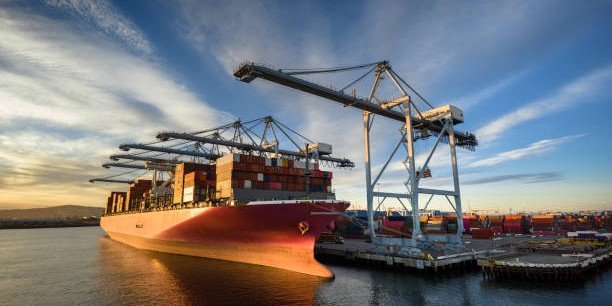
In Coursave, freight logistics courses relate to a crucial component of global supply chains, and understanding its principles is key for those seeking to enter the logistics and transportation industries. These courses are designed to provide comprehensive knowledge about the processes involved in the transportation and management of goods, both domestically and internationally.
Freight Logistics Courses
Freight logistics courses are ideal for individuals looking to pursue a career in supply chain management or transportation, offering the expertise needed to navigate the complexities of modern freight management. Logistics in this field encompasses the planning, execution, and management of transporting goods from one location to another.
It involves various modes of transportation, such as road, rail, air, and sea, and requires a deep understanding of operations, transportation regulations, freight handling, customs procedures, and technologies that support supply chains. Professionals in the field are tasked with ensuring that goods are delivered on time, at the right cost, and in compliance with relevant laws and regulations.
Freight logistics courses generally cover a broad range of topics that allow students to grasp the foundational concepts as well as the advanced principles of logistics and supply chain management. An introduction to freight covers the basic concepts. Students learn about the role of this field in global trade and the factors that influence freight operations, such as market demand, economic conditions, and international regulations.
Key terminology, including terms like freight forwarding, shipping, and incoterms, are introduced at this stage. A significant portion of these courses is dedicated to understanding the various transportation methods used in freight management, including road transport, rail, air, and ocean freight.
Freight logistics courses explore the advantages and limitations of each mode, cost considerations, and how to select the appropriate transportation method based on factors like the nature of the goods, urgency, and destination. Freight logistics is an integral part of the larger field of supply chain management (SCM).
A core aspect of many logistics courses is to help students understand how freight logistics fits within the broader supply chain network. Key topics in this area include inventory management, procurement, distribution, and the flow of goods from manufacturers to consumers. One of the most important elements in freight logistics is understanding the process of freight forwarding.
Students in freight logistics courses are taught about the role of forwarders, who act as intermediaries between shippers and carriers, and are responsible for organizing the shipment of goods. They also learn about the various types of shipping documentation required for international trade, such as bills of lading, commercial invoices, and customs declarations.
These documents are critical for ensuring the smooth movement of goods across borders and adhering to international trade regulations. Customs regulations play a significant role in freight logistics, especially for international shipments. Courses delve into the complexities of customs procedures, including import/export documentation, tariffs, customs clearance processes, and trade compliance.
Students in freight logistics courses learn about the role of customs brokers and how to ensure that shipments meet all legal and regulatory requirements, minimizing delays and avoiding penalties. Modern logistics relies heavily on technology to streamline operations. Freight courses often include instruction on transportation, warehouse and global positioning systems, that help track shipments and optimize routes.
Students also learn about the role of data analytics and artificial intelligence in predicting demand, improving efficiencies, and reducing costs in freight logistics. Transportation is fraught with risks, including natural disasters, theft, accidents, and delays. A crucial component of education in this field is learning about risk management strategies.
Freight logistics courses cover how to assess potential risks in the transportation of goods and develop contingency plans. Topics such as insurance, safety protocols, and crisis management are typically addressed, helping students understand how to protect both their clients and companies from unforeseen disruptions.
In an increasingly globalized world, freight courses also include a focus on international trade. Students learn about the complexities of moving goods across borders, including the regulations, tariffs, and trade agreements that influence international logistics. Understanding the flow of goods across different regions, navigating language barriers, and managing cross-cultural communication are important aspects of these courses.
By completing freight logistics courses, students acquire a wide range of valuable skills, such as the ability to analyze and optimize supply chain operations, identify inefficiencies, and recommend improvements. Freight logistics professionals must be quick thinkers who can solve problems related to shipping delays, route changes, and unexpected disruptions in supply chains.
They also acquire a strong understanding of logistics software, tracking systems, and digital tools that aid in the management of freight movements. Effective communication is a valuable key in logistics, as professionals must collaborate with suppliers, customers, customs officials, and carriers.
The ability to manage shipping documents, schedules, and compliance requirements with precision is vital in ensuring smooth logistics operations. Upon completion of a freight logistics courses, graduates can pursue a variety of roles in supply chain industries. Common job titles include freight forwarder, supply chain analyst, logistics coordinator, transportation manager, and customs compliance officer.
In addition, many graduates go on to work for freight forwarding companies, shipping lines, airlines, or multinational corporations involved in the import and export of goods. For those interested in further specialization, advanced courses in areas like supply chain optimization, logistics strategy, or project management can provide additional opportunities for career advancement.
Freight logistics courses relate to an essential field that plays a significant role in the global economy. These offer the knowledge, skills, and expertise needed to navigate this dynamic and complex industry. Whether you are new to the field or looking to advance your career, these courses provide a solid foundation for those interested in contributing to the efficient and timely movement of goods across the globe.











